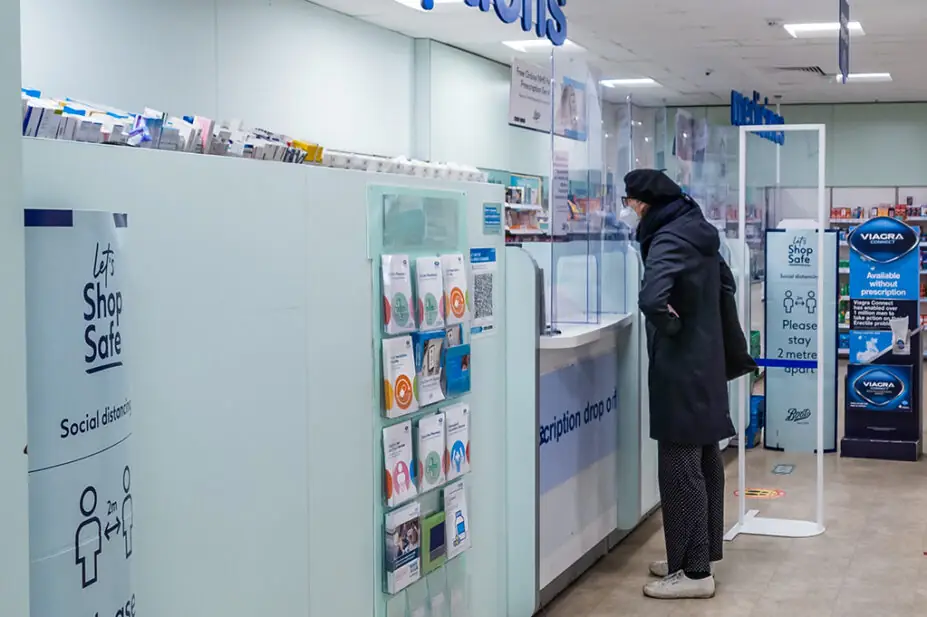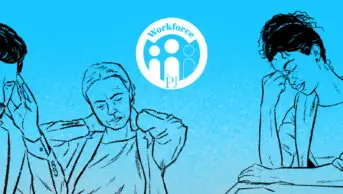
Shutterstock.com
The number of pharmacist independent prescribers (IPs) in England increased by 37% in the year to autumn 2023, responses to the NHS England Community Pharmacy Workforce Survey 2023 have shown.
The annual survey of pharmacy owners, results of which were published on 20 September 2024, received responses from 10,571 pharmacy contractors, of which 9,328 responses were used to collate the data.
According to NHS England, the remaining 1,243 responses were unable to be included because they had not been completed correctly.
Pharmacy owners are required to complete the survey each autumn under their terms of service agreement.
When asked: ‘Of the pharmacists who work in the pharmacy, how many (full-time equivalent [FTE]/headcount) hold a recognised independent prescribing qualification?’, responses recorded 1,494 FTE independent prescriber roles, up 37% on the 1,087 FTE independent prescriber roles recorded in autumn 2022.
In terms of head count — number of individuals in each role within the workforce — the number of IPs recorded in autumn 2023 was 2,216: a 40% increase from the 1,576 in autumn 2022.
However, NHS England noted that IPs did not have to be currently working in a prescribing role to be counted in the survey.
The majority of respondents (85%) answered ‘No’ when asked: ‘Are any of the IPs currently prescribing at the pharmacy?”, which could include private prescribing.
The regions with the highest percentage of respondents with an IP currently prescribing at their pharmacy (20%) were Cornwall and the Isles of Scilly; Mid and South Essex; and North West London.
The region with the lowest number of contractors with an IP currently prescribing at their pharmacy was Herefordshire and Worcestershire, at 3%.
Tase Oputu, chair of the Royal Pharmaceutical Society English Pharmacy Board, commented: “The Darzi review [published in September 2024] highlighted the real opportunity for pharmacist prescribing to enhance patient care, but these survey findings show there is still more to do.
“We are encouraged that pathfinder sites, which will provide insight into community pharmacy prescribing, are now finally underway. While we have seen some welcome investment in independent prescribing training, making the most of this potential in the longer-term will depend on workforce planning, prescribing budgets, and the commissioning of new services to use pharmacists’ skills.”
Alastair Buxton, director of NHS services at Community Pharmacy England, said: “It is encouraging to see the increase in the number of community pharmacists who are IPs.
“Pharmacists are now starting to prescribe in NHS England’s IP pathfinder programme, which will help inform how prescribing is incorporated into the NHS contractual framework and how the new government’s proposed community pharmacy prescribing service might work.
“We look forward to working with DHSC and NHS England on how prescribing will become part of the CPCF and on how the NHS can support many more community pharmacists to become prescribers.”
Results from The Pharmaceutical Journal’s 2024 salary survey showed that only 14% of 322 community pharmacist respondents were currently IPs, compared with 53% of hospital pharmacists and 71% of pharmacists in general practice.
More than a quarter of community pharmacist prescribers who responded (26%) said they had never actually prescribed, with 9% saying they prescribed less than once a year.
In May 2024, the first 14 ‘Independent prescribing pathfinder programme’ pharmacies went live with the service.
Under the programme, 210 community pharmacies across all 42 integrated care boards in England will trial independent prescribing for a range of conditions as part of a locally-commissioned, nationally funded clinical service.
Conditions covered by the service include minor illnesses and long-term conditions, such as prescribing statins or anticoagulants for cardiovascular disease, or prescribing rescue therapy for respiratory disease.
From 2026, all pharmacists will be IPs at the point of registration.


